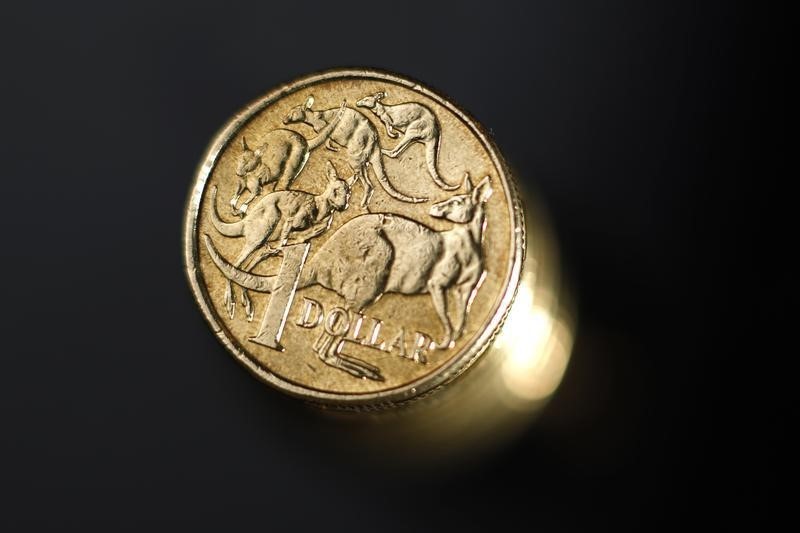Street Calls of the Week
By Cecile Lefort
WELLINGTON, Sept 22 (Reuters) - The Australian and New Zealand dollars were subdued against their U.S. counterpart on Tuesday but held gains versus the euro on expectations of further easing from the European Central Bank (ECB).
The Australian dollar stood at $0.7140, having dropped nearly 1 percent on Monday.
It was pulling away from a four-week high of $0.7280 touched on Friday following comments from Federal Reserve officials that kept alive expectations for a rate hike later this year.
In contrast, other major central banks including the ECB and Bank of Japan said they could possibly expand their stimulus program.
As a result, the euro dipped near three-week lows at A$1.5680, having tumbled around 10 cents in a month.
Next key support was found at A$1.5587. The euro held at NZ$1.7719, from a peak of NZ$1.7859 on Monday. The common currency climbed as far as NZ$1.8138 last month.
While Japanese markets remain on holiday, the focus this week is China's flash PMI report on Wednesday for clues on the state of its economy and its commodity demand. China is Australia's top export market.
"Given the weakness in the broader Chinese economy, the risks are tilted to the PMI disappointing expectations which should weigh on AUD," said Richard Grace, a strategist at Commonwealth Bank of Australia.
Aussie support was found at the 10-day moving average of $0.7130 then $0.7090 with resistance at $0.7180.
Across the Tasman sea, the New Zealand dollar NZD=D4 eased to $0.6308, having skidded 1.4 percent on Monday. Yet, it was still in a well-defined range of $0.6244 to $0.6458 seen so far this month.
It popped to a three-week peak last week, but like its Aussie counterpart, ran out of puff on diverging rate outlook between the United States and most Western nations.
New Zealand government bonds eased, sending yields 3 basis points higher along the curve.
Australian government bond futures retreated, with the three-year bond contract YTTc1 off 4 ticks at 98.080. The 10-year contract YTCc1 was down 4.5 ticks to 97.2050. (Editing by Kim Coghill)
